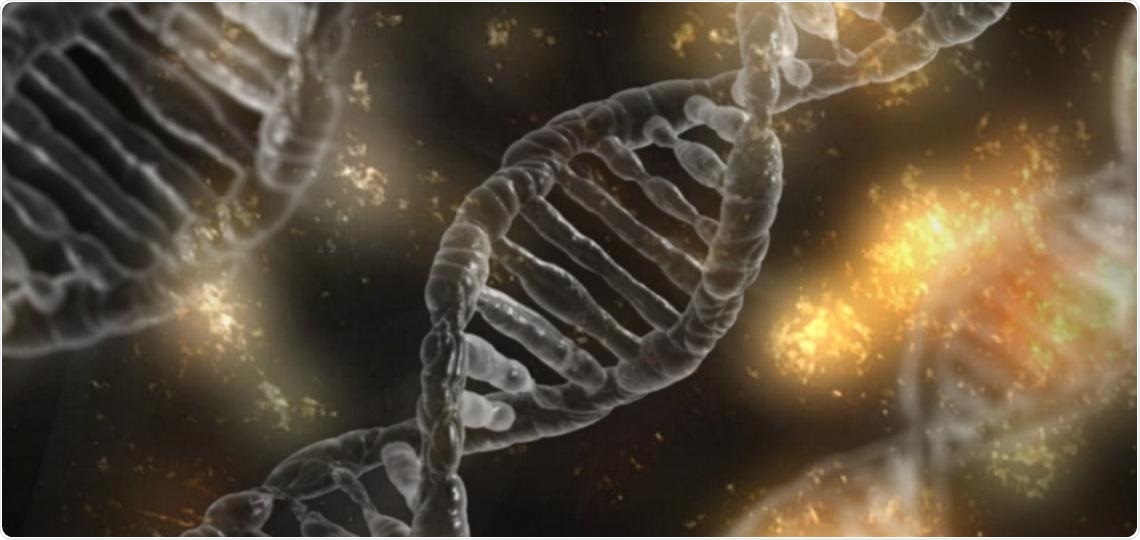Scientists from Baylor College of Medicine have led a research group to identify a mechanism using which transcription factor KLF4 can help organize chromatin, thereby influencing gene expression.

Image Credit: Baylor College of Medicine
Published in the Nature Communications journal, the study shows that KLF4 binding can make DNA condense into a separate liquid phase through a process known as biomolecular condensation. This process recruits other factors that impact gene expression.
Cells regulate the expression of their genes with proteins called transcription factors. In the current study, we focused on master transcription factor KLF4, which is known to selectively mediate gene expression and reprogramming that determines cell fate.”
Dr Josephine C. Ferreon, Study Co-Corresponding Author and Assistant Professor of Pharmacology and Chemical Biology, Baylor College of Medicine
Dr Ferreon is also a member of the Dan L Duncan Comprehensive Cancer Center at Baylor.
The genetic information of a cell is packed in chromatin—a compact, complex, dense structure constituting proteins and DNA. For the expression of a specific gene, the gene expression molecular machinery should have access to that DNA stretch. Transcription factors like KLF4 have a role in the reorganization of the chromatin to offer access and enable gene transcription; however, it is not clear how this is achieved.
The researchers performed experiments with cells grown in the lab and identified that KLF4 forms droplets in the cell nucleus that recruit other transcription factors.
Imagine mixing oil and water, how they form separate layers, or two liquid phases. When KLF4 interacts with specific chromatin regions, it forms a condensate—a separate liquid phase—that preferentially recruits other molecules that help open the chromatin and mediate gene transcription.”
Dr Josephine C. Ferreon, Study Co-Corresponding Author and Assistant Professor of Pharmacology and Chemical Biology, Baylor College of Medicine
Although other transcription factors take part in biomolecular condensation via unstructured protein regions, the researchers demonstrated that KLF4 droplets form in cells even if there is a lack of unstructured regions.
By contrast, the formation of KLF4 droplet relies on regions known as zinc fingers, which are known to bind DNA. Single-molecule fluorescence experiments reveal that the three KLF4 zinc fingers, which often bind to one DNA in a row, can “bridge” between two DNA molecules.
“This type of biomolecular condensation involving zinc fingers and DNA has not been seen before,” added Ferreon.
Formation of this biomolecular condensate is strongly enhanced by a DNA modification called CpG methylation, a change that influences gene expression. Our results suggest that the local sequence of DNA and its CpG methylation state enable KLF4 to drive DNA into a separate phase, which helps to organize chromatin in three dimensions.”
Dr Kevin MacKenzie, Study Co-Corresponding Author and Associate Professor of Pathology and Immunology and of Pharmacology and Chemical biology, Baylor College of Medicine
“Hundreds of human transcription factors contain tandem zinc fingers like those in KLF4, so this class of rapidly evolving proteins may be implicated in chromatin organization through similar 'bridging' interactions,” added MacKenzie.
Source:
Journal reference:
Sharma, R., et al. (2021) Liquid condensation of reprogramming factor KLF4 with DNA provides a mechanism for chromatin organization. Nature Communications. doi.org/10.1038/s41467-021-25761-7.